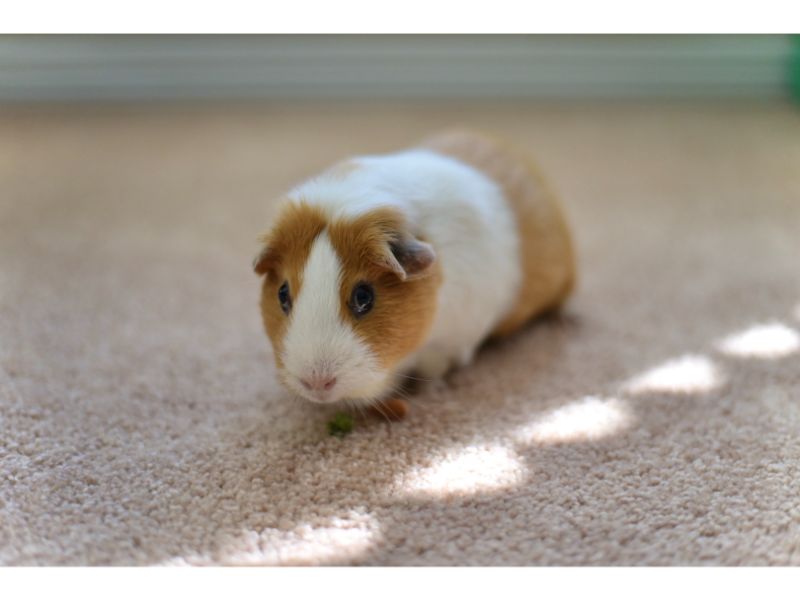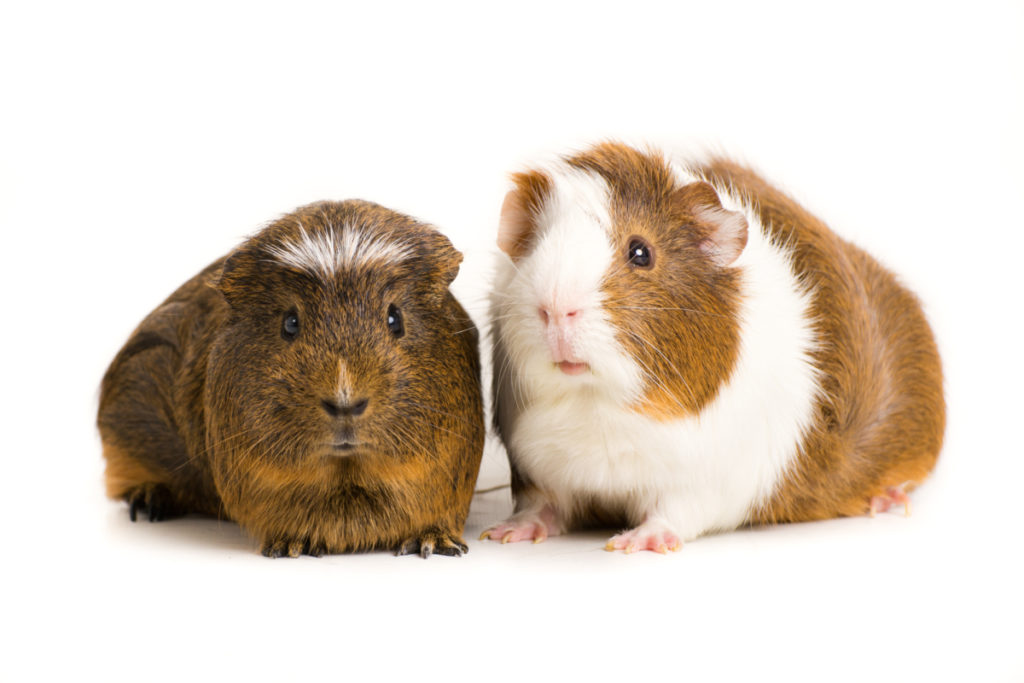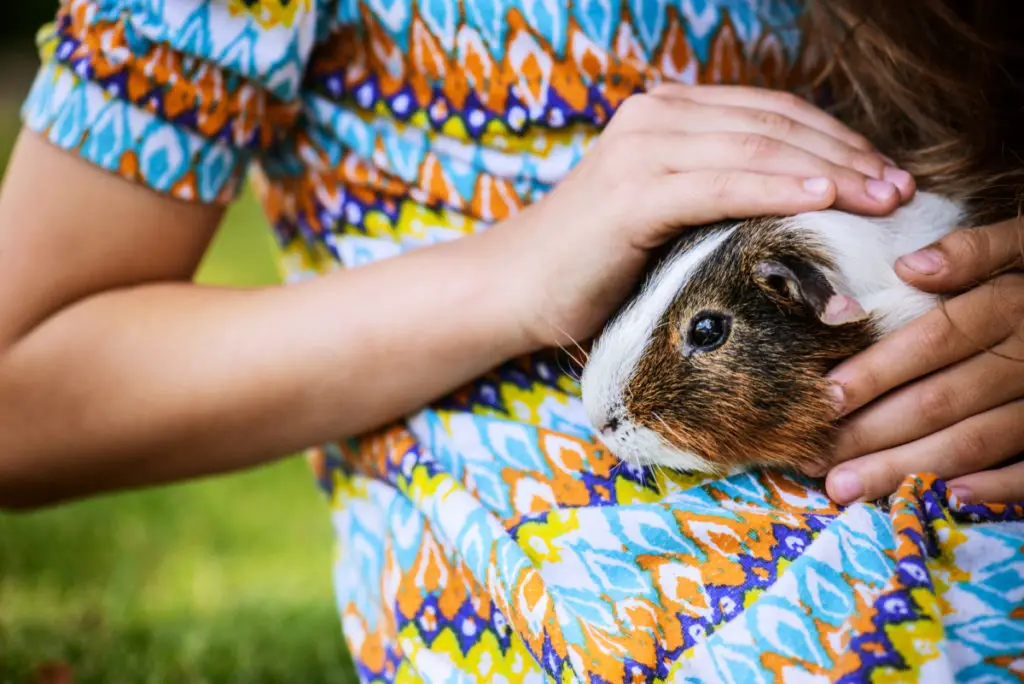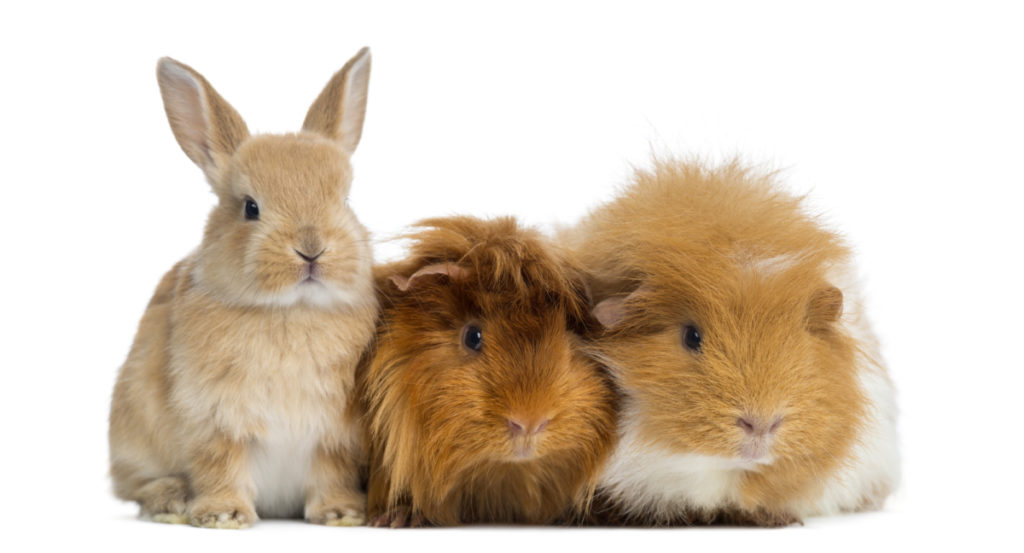Can Guinea Pigs Eat Mustard Green?
Can guinea pigs eat mustard green? Absolutely, mustard green, just like other vegetables, brings numerous health benefits to guinea pigs. They can get the nutrients that they need from this veggie. One of which is Vitamin C which helps in improving their overall health.
Unlike parsley or kale, mustard green contains lesser calcium. Yes, calcium is healthy for them, but you should feed your pet in moderation only. Better yet, it’s safe for your cavies to eat! In fact, some pet owners feed it to their pets daily or every other day, while others feed it just rarely.

To know more about this vegetable, how you can properly feed this to your pet, keep reading until the end of this post. I will discuss every detail that you need to know, including the health benefits, as well as the risks of feeding your guinea pigs with mustard greens.
Facts About Mustard Green
Before we get into the benefits and risks of this veggie, let me tell you first some of the noteworthy facts about this vegetable.
Mustard greens are also known as leaf mustard, green mustard cabbage, or Chinese mustard.

The name “mustard greens” is coned due to their particular condiment mustard taste. Since ancient times, it is mostly grown in Japan. But the origin of this plant dates back to India, more than 5,000 years ago.
This mustard plant species is included in Korean, Japanese, Chinese, Indian, Italian, and African dishes. So if we can eat them, guinea pigs can eat them as well.
What a brainer! Now that you’re enlightened with such facts let’s move on to the benefits.
Health Benefits Of Feeding Mustard Greens To Your Guinea Pigs
Can guinea pigs eat mustard green? As I mentioned earlier, mustard green can bring a lot of health benefits to your cavies. If you are still unconvinced, let me enumerate them for you.
-
Strong muscles and healthy blood
Mustard greens contain up to 7% of iron and 4% of magnesium. The iron content helps in maintaining healthy blood. Magnesium, on the other hand, will improve their muscle strength. These minerals are required in a very small amount but their deficiency can lead to major problems. If deficient in these minerals, your guinea pig may not grow properly.
-
Reduced stress
The vitamin B6 content of mustard greens will reduce the stress of your cavies. It will release more serotonin, also known as the happiness hormone. Much more, eating this veggie can help them in improving their sleep.
-
Antioxidants
If you look up the mustard green nutritional data, you will see that vitamin A takes up the highest percentage of up to 77%. This vitamin is responsible for maintaining the health of all of its internal organs.
Not only that, but it will also keep their skin healthy as well as their eyesight in excellent condition. In general, it helps in improving their immunity as a whole.
-
Ensures a healthy cardiovascular system
If you are more concerned about mustard greens’ fat and cholesterol content, don’t worry because it contains zero cholesterol and is deficient in fat. As such, it is safe to say that there will be a lesser risk of heart-related problems such as heart attack. The same goes for hypertension.
The veggie will help ensure that the heart and the blood vessels will be in good condition.
-
Prevents scurvy
Mustard greens also contain vitamin C which helps in preventing scurvy. If you are not familiar with this disease, it causes internal bleeding and loose stool.

It also damages their coat and results in loss of appetite. Scurvy can be fatal, so it is a good idea to feed your cavies with foods rich in vitamin C, such as mustard greens.
-
Energy
Of course, it is also crucial that your guinea pigs acquire enough energy for the entire day. Gratefully, mustard greens also offer sufficient amounts of proteins and carbs. My friend’s guinea pigs are all over the place when I visit them! Maybe she feeds them mustard greens? I should ask her next time.
-
Good digestion
This vegetable also contains fibers that help in improving bowel movements and digestion. This is a great benefit; however, it should be fed in moderation because excess consumption might cause loose stool. So always keep in mind the proper mustard green serving.
-
Healthy weight
Lastly, mustard green helps in maintaining a healthy weight. Again, this veggie is low in fat and low in calories. So there is no need for you to worry about obesity. If your guinea pigs like munching those mustard greens – let them be!
Nutritional data of mustard green
To illustrate the aforementioned health benefits, we decided to include in this post the nutritional facts of mustard greens.
Below is the nutritional data for 110 grams of mustard greens:

- Carbohydrates content – 4.52 g
- Sugar – 1.41 g
- Fibers – 2 g
- Fat – 0.21 g
- Protein – 2.56 g
- Vitamin A – 77%
- Thiamine (Vitamin B1) – 4%
- Riboflavin (Vitamin B2) – 5%
- Niacin (Vitamin B3) – 3%
- Pantothenic acid (Vitamin B5) – 2%
- Vitamin B6 – 8%
- Folate (Vitamin B9) – 2%
- Vitamin C – 30%
- Vitamin E – 12%
- Calcium – 12%
- Iron – 7%
- Magnesium – 4%
- Phosphorus – 6%
- Potassium – 3%
- Sodium – 1%
- Zinc – 2%
Mustard green has zero cholesterol content and, at the same time, is low in sugar and calories. It also contains a low amount of fat. It has some acidic content, specifically calcium and phosphorus, but it is not that high. More importantly, it has an adequate amount of Vitamin C that is very beneficial for your pet.
With this nutritional data, guinea pigs can indeed eat mustard greens. But as much as possible, serve it to them only once a week.
Risks Of Feeding Your Guinea Pigs With Mustard Greens
Although some owners don’t mind feeding their cavies with mustard greens daily, it is still a good idea to pay attention to the proper frequency of servings.
That is because this veggie contains calcium. And high amounts of calcium can result in bladder stones, which are painful for guinea pigs.

In serving this veggie, I would recommend you to follow the safest option once or twice a week.
The excellent serving size would be half or whole leaf. More than this, it might lead to painful urination and kidney stones. Those can be fatal to your guinea pig.
You shouldn’t feed mustard greens daily as it can be deficient in some nutrients needed by your guinea pig.
Those nutrients are easily fulfilled if you use different ingredients in diet. Feeding mustard green only will limit your pet’s nutrient intake. If this is carried on for a long time, the consequences can be serious.
Conclusion
Can guinea pigs eat mustard green? Again yes, they can. It contains a high amount of Vitamin C that is generally present in the greens. Therefore, it is undoubtedly a great food to feed your cavies. However, excessive intake can bring some risks as it has calcium content.
Apart from that, this veggie also contains some sugar, fat, and phosphorus. Regardless, it is still healthy for them as long as you feed it in moderation and in accordance with the proper amount and frequency of serving. I would try to feed mustard greens to my ginger if I can get my hands on them!
Regardless, if you keep this in mind, your guinea pigs will receive many health benefits that this vegetable brings.
Thank you for reading and good luck!
